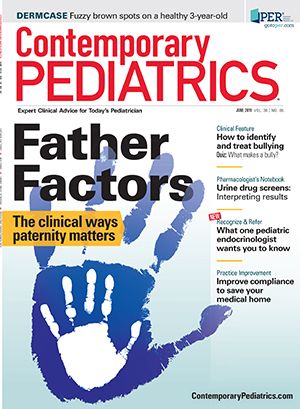Reading books with toddlers: Print or electronic?
When parents and children read a book together they have better collaborative experiences when the books are traditional print volumes than when they are tablet-based (electronic) books, according to a recent study in 37 parent-toddler pairs.
Michael G Burke, MD

When parents and children read a book together they have better collaborative experiences when the books are traditional print volumes than when they are tablet-based (electronic) books, according to a recent study in 37 parent-toddler pairs.
Participants completed a videotaped reading activity with 3 different books: a basic electronic book, which called for swiping to turn the pages and tapping illustrations to elicit words; an enhanced electronic book, which included sound effects and animation; and a print book. The 3 books were all from the “Little Critter” series by Mercer Mayer.
Compared with reading electronic books, reading print books was more likely to elicit parent and child comments and questions, including those that went beyond what was in the book itself and that connected the story to the child’s experiences. When reading electronic books, parents and toddlers spoke less overall and in a less collaborative manner than they did when they read print books. In addition, while reading electronic books, parents made more format-related comments (such as, “go ahead and turn the page”) and issued more negative directions (such as, “don’t touch that button”). With electronic books, parents also asked fewer simple questions, commented less about the storyline, and read the text aloud less often (Munzer TG, et al. Pediatrics. 2019;143(4):e20182012).
Thoughts from Dr Burke
As a parent who spent lots of hours reading an old-fashioned, well-worn copy of Goodnight Moon, I would be interested in knowing which medium gave the parent more joy. There aren’t many things in life as sweet as reading a book to your own child. If you work in a setting with the Reach Out and Read program, this study is an endorsement for your participation. If not, consider prescribing application for a library card as part of your anticipatory guidance for toddlers.

Anger hurts your team’s performance and health, and yours too
October 25th 2024Anger in health care affects both patients and professionals with rising violence and negative health outcomes, but understanding its triggers and applying de-escalation techniques can help manage this pervasive issue.